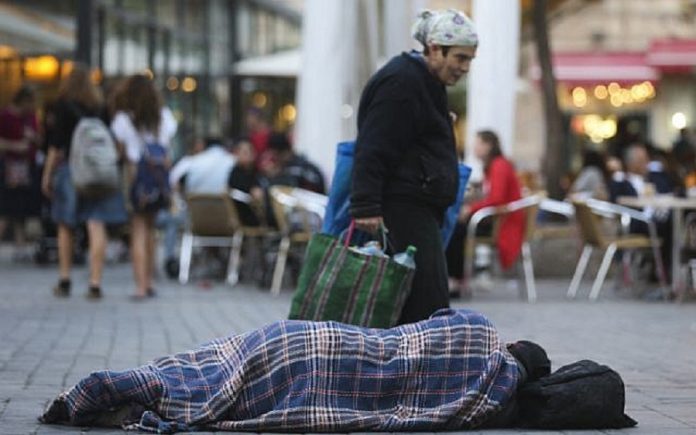Inflation and food insecurity in Israel have become major issues just ahead of the prime ministerial election on Tuesday, 1 November.
We deserve an easy life… We, middle-class people, are really falling apart.
Most of the world’s countries have faced high inflation since the year that began with the Ukraine war. Rising inflation has increased the cost of energy and food.
But in Israel – where 400 grams of Tuna fish costs 30 shekels (about $8.50) – inflation has been a serious problem for years. One reason for this inflation is the high price of the shekel which has increased the cost of imports.
Last year The Economist ranked Tel Aviv as the world’s most expensive city of the world, after skyrocketing property prices in the city. Rising inflation, declining employment, falling salaries, skyrocketing prices, and income inequality are fueling the rage of anger.
Israel will hold elections for the fifth time in less than four years on Tuesday amid political turmoil and instability.
Israel: fifth election likely to result in political deadlock – Poll
Historically, Israeli voters vote on the basis of religious, and ethnic, views and on the Palestinian conflict. But in the upcoming elections on November 1, the crisis of the rising cost of living has become a major issue for candidates including incumbent Prime Minister Yair Lapid and opposition leader Benjamin Netanyahu.
Both candidates have promised to take action to solve the problem. According to the report of the Central Bureau of Statistics, this month the annual inflation has reached the highest level of the last decade i.e. 4.6 percent.
Levy, who owns supermarket chains throughout Israel and West Bank settlements, says: “People who previously shopped at supermarkets near their homes, because of the rise in prices now come to us, because they know that our prices are low.”
Ayelet Benshushan, one of the customers of the Levy Rami, strolling under a hoarding of discounts on cucumbers, beef and canned tuna fish, says: “We’ve always been careful about spending, but now easily we ignore to buy a lot of essentials.”
Read More: Israel Has More Frequent Elections Than Any Other Country – Report
Ayelet is the mother of five children. She and her husband are laborers and maintenance workers. life is difficult for them. She now cooks things like bread and cakes at home so that she doesn’t have to buy from outside.
Aaron Troen, a professor at the Hebrew University School of Public Health, emphasizes that middle-class families are also facing pressures on food security, and the cost of one-time healthy food has soared.
“When food prices rise and wages and salary don’t rise, the middle class has to pay more for rent, transportation, gas, and education in addition to food,” he told AFP.
He explained that people are facing difficulties in preparing healthy food, … people first start reducing costs by changing their diet, then they come to the level of lowering the quality of food, and then they start to deal with crisis by leaving one meal or giving food to their children and starving themselves.
In 2021, more than 20% of Israel’s population was facing “food insecurity”, according to estimates by Israel’s Social Security Agency.
According to Latet, Israel’s largest non-governmental group fighting poverty and food insecurity, the figure was 30 percent.
A few days before the election, Ben Shushan expressed hope that politicians would pay attention to the problems of the middle class in the future.
He says: “I want them to think of us, we are ordinary citizens, we work hard, we have children, we pay our taxes and we have completed our national or military service.”
In the end, he said: “We deserve an easy life… We, the middle-class people, are really breaking down. We hope they listen to us.”













